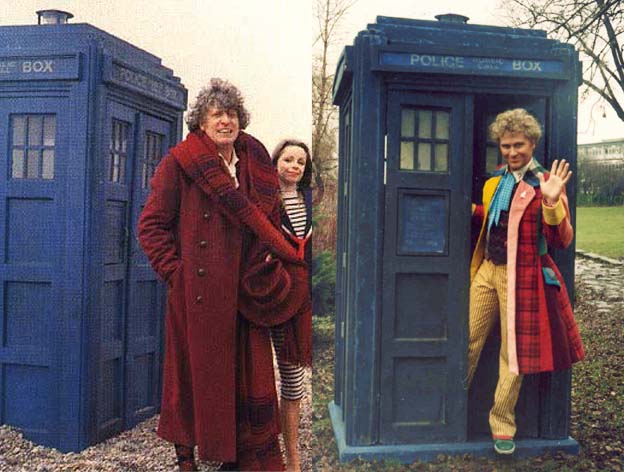Game:
A few days ago, having recently acquired my very own copy of Truxton I uncloaked my Genesis — for the playing thereof.
Truxton, I found to be almost identical to Fire Shark — only… not as much fun. I can’t get past the beginning of level two without some dumb ship popping out of nowhere and running into my back before I know what’s up.
Still. It’s there. And now so is my Genesis. Being it that I’m on this Castlevania kick — again — I pulled out my Majesco-republished (and thereby terribly-boxed) copy of Bloodlines. As not entirely bad as this game is, I’ve rarely bothered to play it past the second level or so. The game is difficult — but in a more floaty way than I expect from Castlevania. It lacks some charm. As applaudable as Michiru Yamane‘s music might be, her sound effects are entirely loathsome. All in all, the game is just kind of… well, again — it’s there.
On one default set of two continues, I managed to get to… what I think should be Dracula’s final form: a big, fake Mode-7 demon with a face in his crotch. I might even have beaten him; I had the pattern down and everything. He didn’t have much life left. And yet: I didn’t dodge when I should’ve.
Still. Bloodlines. Last form (?) of last boss. Not bad, I say. Dare I suppose, better than you.
If you’ve actually beaten the game, don’t tell me. Let me feel special for the moment.
Movie:
The Italian Job: Sure.
It’s got energy. It’s certainly nothing special in its own right; all I could think of, from the premise on out, were the observations of Charlie Kaufman in Adaptation. Still, it’s very well-made. It has a great sense of momentum. The plot doesn’t follow through on any of the stupid possibilities that it coudl have; it manages to dodge away — fairly — every time it approaches a potentially-unsatisfying easy answer. Not once did I feel insulted or cheated. I felt tense when I was supposed to feel tense. I cared when I was supposed to care.
I think the whole Napster bit could have been minimized. The movie also acted as a rather obvious commercial for those mini cars (which I don’t believe are real Minis, as such — not that I know anything of, or much care about, cars). Still, not enough to overly stretch my patience.
So. Yeah. For what it is, it’s certainly worthwhile. There’s not much to study, but it’s enjoyable just in the fact that it’s so unusually competent. It feels more European than American — which might explain the previous observation.
UPDATE:
According to Ebert: “This is just the movie for two hours of mindless escapism on a relatively skilled professional level.”
Didn’t I just say that?
Music (and… Game, again):
Harmony of Dissonance: seriously, this game has to possess the most powerful soundtrack in the whole series. Most Castlevanias have really impressive power-melodies. The NES trilogy: if Bach (not J.S.; perhaps a lesser Bach) were aware of 20th century music, this might be what he’d have come up with. Circle of the Moon has some of the most lush, layered, driving, just plain fun music in the series.
However: the HoD score is the only one to really make me feel anything in particular. The more closely I listen, the more impressed I become. This isn’t just videogame music. There’s something else going on here; a certain kind of genius, or at least wild inspiration. The contrasting melodies swirl into madness, creating a dark updraft for the player — instilling an unsettled momentum into his musculature.
The bass takes up the central melody role, holding the piece together while the lead stutters incoherently. The entire piece pulls in its legs, rotating more and more tightly, getting all the stronger — until it snaps; it lets go, carrying the player to sanity with one key breeze. There’s but one escape, and the music finds it — yet it doesn’t stop. It must keep going while the player remains dazed from the last bit of overstimulation. It has places to go. It can’t let the player loose to drift away. It can’t break the atmosphere.
All of the parts speak to each other. They’re not just there to fill out the orchestration, as in so many other soundtracks in this series. They argue. They trade off. They team up. They go in their own disparate directions, then crtash back together again. They listen. They respond.
This soundtrack knows what it’s doing. It has an intelligence to it. It has a personality unto itself. It would be worth talking to.
Again, I can’t say that about the Aria of Sorrow score. That music is just… nice. And appropriate. It’s… there. It has no personality of its own — and I imagine that’s probably the whole intent. People screamed so much about the HoD score that Igarashi must’ve told Yamane to give him something more typical this time around. It looks like it’s worked, given the popular reaction.
Sigh.
See, this is where informed feedback could do a developer well. I’ve slowly been poring my way through the free magazines that I got at E3 — and, man. I’ve yet to see one thoughtful critique. One interesting, well-considered argument. The obviously lousy games get bad scores. The high-profile games get good scores. The ones in between are gernally analyzed on the basis of a few random observations which might or might not have anything to do with the intent of the game in question. It’s hard to tell.
HoD gets a 9.5, because it must — although note is made of the terrible soundtrack. In this case, the reviewer doesn’t even bother to explain that it sounds like NES music (!). Then, neither does he vaguely brush off its composition, as in so many web reviews. Not enough space to explain. Must conserve words.
Metroid Fusion gets a 9.5. Why? Because it must. Show some respect for the Gameboy game of the year, people. Everyone knows that Metroid is flawless. Reword the press release, and perpetuate the consumer cycle. Even if it’s not perfect, so what. It’s one of the best games ever. Must show the proper respect. Mustn’t question the publishers (aside from Acclaim; they’re okay to bash at will), or they might complain. Can’t bite the hand that feeds you.
Since E3, I’ve come to the realization that the game industry — at least over here — seems to be made up of a million frat boys, all in it for the ride. And I’m not just talking about the “journalists”.
Let’s talk about the journalists, though. Brandon asks two or three well-informed questions. He listens to the responses, and asks follow-up questions. PR guy, astonished, comments that Brandon “should work for CNN”. So: how has everyone else been acting? Brandon was only being professional.
Then I remember the reviews I see on IGN and — particularly — Gamespot: the big sites. Then I remember the way news travels — rarely credited or researched with so much as a phone call. Then I overhear Tim’s experiences with a particular site to which he contributed for… about two or three weeks. Then I come home and I read the fucking press releases.Then I read the magazines.
…
I… was going to say more, but I’m beginning to tire — both of this subject, and in a more general sense. Maybe I’ll pick up this thread later.
For now: EGM continues to be not-all-that-bad.



